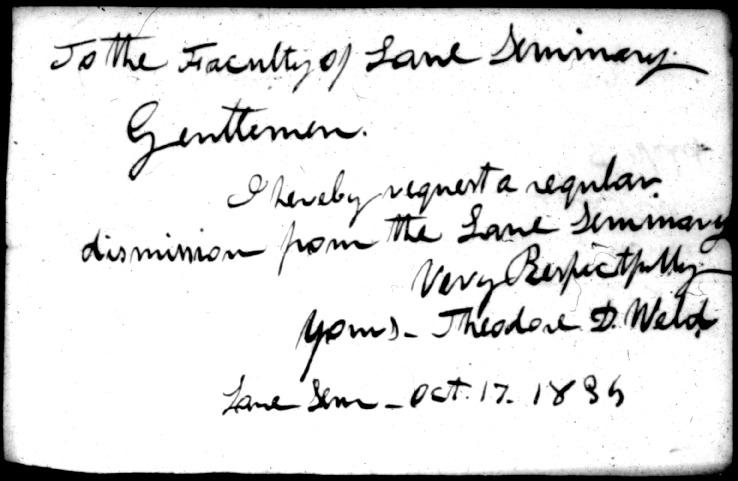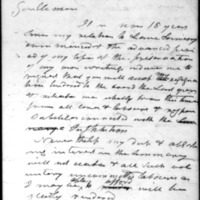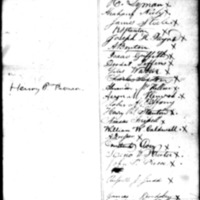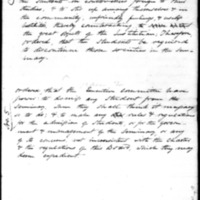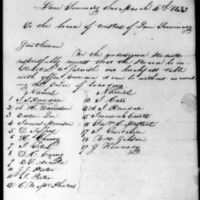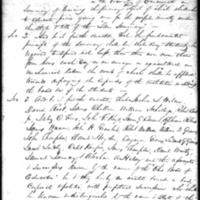Theodore Dwight Weld Biography
American abolitionist Theodore Dwight Weld was born in 1803 in Hampton, Connecticut. Both his father and grandfathers were Congregational ministers, so he had a strong, early influence in religion. At age 14 he took over the running of his father’s 100-acre farm in order to earn money to attend Phillips-Andover Academy in Massachusetts. He was a student there from 1820 to 1822, but was compelled to leave due to failing eyesight. His doctor recommended Weld travel for recovery and so began three years of lecturing on mnemonics throughout the United States. During this time, he witnessed slavery first-hand while becoming an expert public speaker.
In 1825 Weld and his family moved to Pompey, New York where his studies began again at Hamilton College in Clinton, New York. It was then that he met the famous evangelist Charles Finney. Weld became a devoted admirer of Finney’s, travelling with him as a member of his “holy band” preaching salvation and temperance for two years. Another member of the “holy band”, Charles Stuart, an educator and preacher became a strong influence in Weld’s life. When Stuart travelled to England to assist with the British antislavery movement he sent Weld copies of antislavery pamphlets. These writings persuaded Weld to believe in the sinfulness of slavery.
Upon Stuart’s recommendation, Weld enrolled at Oneida Institute in Whitesboro, New York. Here he was determined to become a preacher. Oneida was a “manual labor institution” where all students were required to complete physical farm work simultaneous to academics to help pay their tuition. One of the most influential figures in the Oneida community was Lewis Tappan, a wealthy New York merchant and abolitionist. Tappan believed strongly in the benefits of this type of education for his sons and all others. Lewis Tappan met Theodore Weld at Oneida and along with his brother Arthur Tappan, hired Weld as the general agent of the Society for Promoting Manual Labor in Literary Institutions. The Tappan brothers encouraged Weld to attend the Lane Theological Seminary, in which he enrolled as a student in 1832.
The recently founded Lane Theological Seminary was located in the area of Cincinnati, Ohio known then as “Walnut Hill” and Weld became one of its first students. Continuing his abolition efforts along with his studies and manual labor, Weld encouraged his fellow students to become abolitionists as well. Weld dedicated almost all of his extra time to helping and educating the freed people of Cincinnati.
In 1834, Weld created the idea of holding debates on the topics of slavery and abolition, which would be held in public on the Lane Seminary campus. He wanted immediate emancipation, and was opposed to the idea of colonization because according to William Lloyd Garrison’s ideas on slavery, colonization was a compromise with sin. This series of debates concluded as Weld hoped by convincing the attendees that slavery was a sin, the colonization idea was wrong, and slavery should be abolished immediately. However, the seminary board of trustees viewed these positions as radical thinking, and they subsequently voted to end all societies, including abolitionist and colonizationist at the seminary. As a result, many students including Theodore Weld became outraged, and decided to leave the seminary.
After his requested “dismission” from the Seminary was granted, the Tappans’ hired Weld as a lecturer and to train others in lecturing about antislavery. His training efforts led to a group of lecturers called the “Band of Seventy” which included Angelina Grimke, Weld’s future wife. After two years, Theodore was forced to give up his lecturing due to health problems with his throat. He turned his focus to writing on the subject of slavery. Weld remained a staunch abolitionist throughout his life. He died at the age of 92 in 1895.
